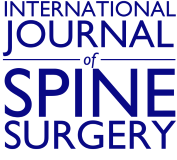Abstract
International collaborations can be the key to overcoming innovation implementation hurdles. The authors report on a joint symposium between the International Society For The Advancement of Spine Surgery (ISASS) and La Sociedad Iberolatinoamerica de Columna (SILACO), and La Sociedad Interamericana de Cirurgia de columna de Minima invasión (SICCMII) aimed at improving joint surgeon education programs. The symposium highlighted that patient-related spine care issues are similar across geographical, cultural, and language barriers. The sustainability of such programs depends on funding and mutually respectful relationships orchestrated by multi-lingual leaders who will bridge gaps created by geographical, cultural, and language barriers to effectively develop clinical research content focused on advancing surgeon education and improving patient outcomes across the Americas.
Footnotes
Funding The authors received no financial support for the research, authorship, and/or publication of this article.
Declaration of Conflicting Interests The authors declare no conflict of interest. This editorial was not compiled to enrich anyone or endorse any products or push any agenda; it was merely intended to highlight the importance of collaborative research to advance surgical spine care using the joint ISASS, SILACO, SICCMII, and FLANC symposium as an example.
Disclaimer The views expressed in this article represent those of the authors and no other entity or organization. The authors are accountable for all aspects of the work in ensuring that questions related to the accuracy or integrity of any part of the work are appropriately investigated and resolved.
- This manuscript is generously published free of charge by ISASS, the International Society for the Advancement of Spine Surgery. Copyright © 2022 ISASS. To see more or order reprints or permissions, see http://ijssurgery.com.






